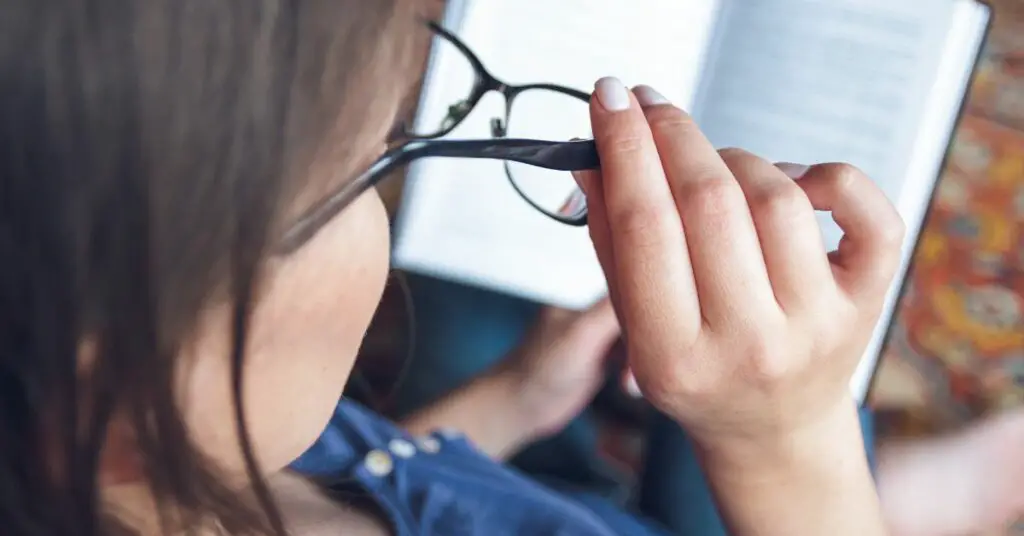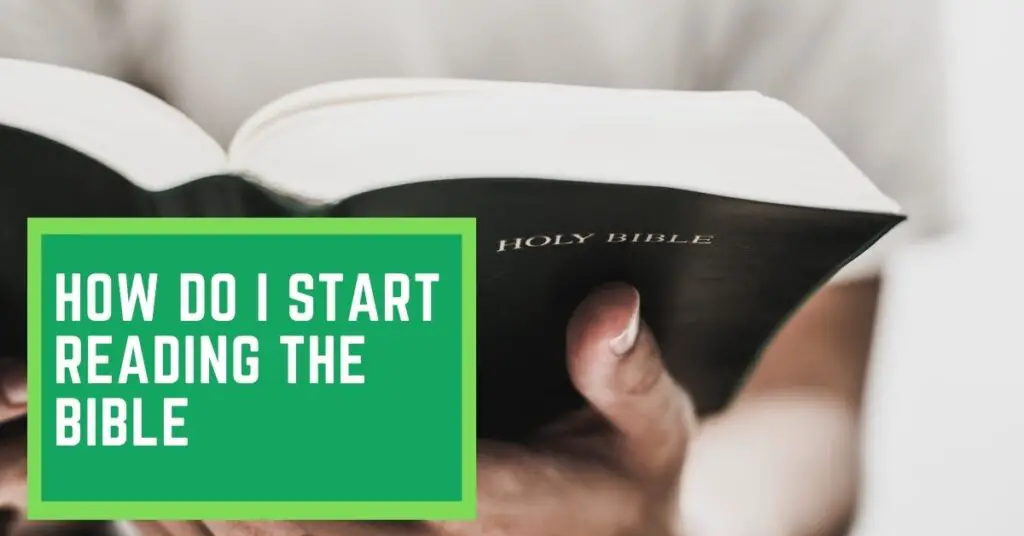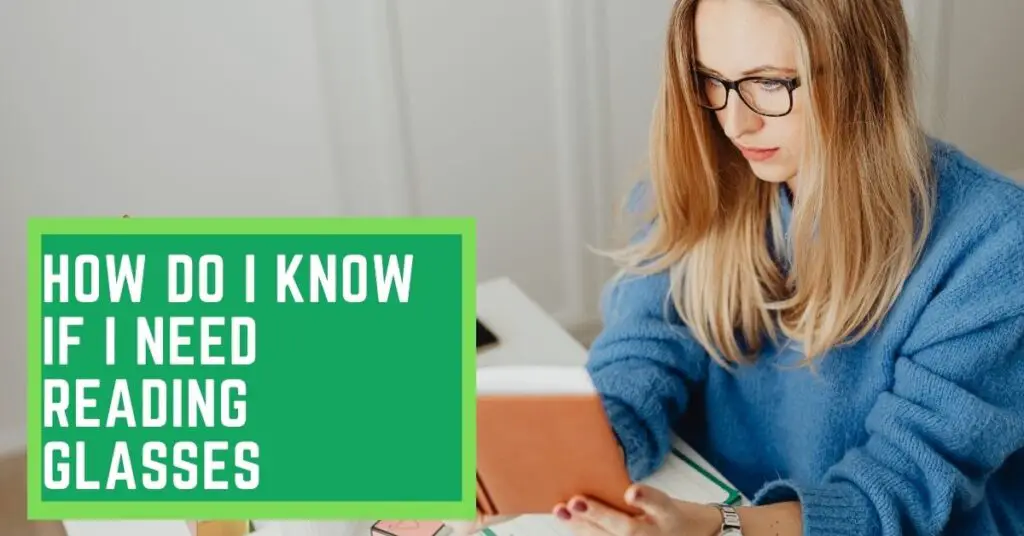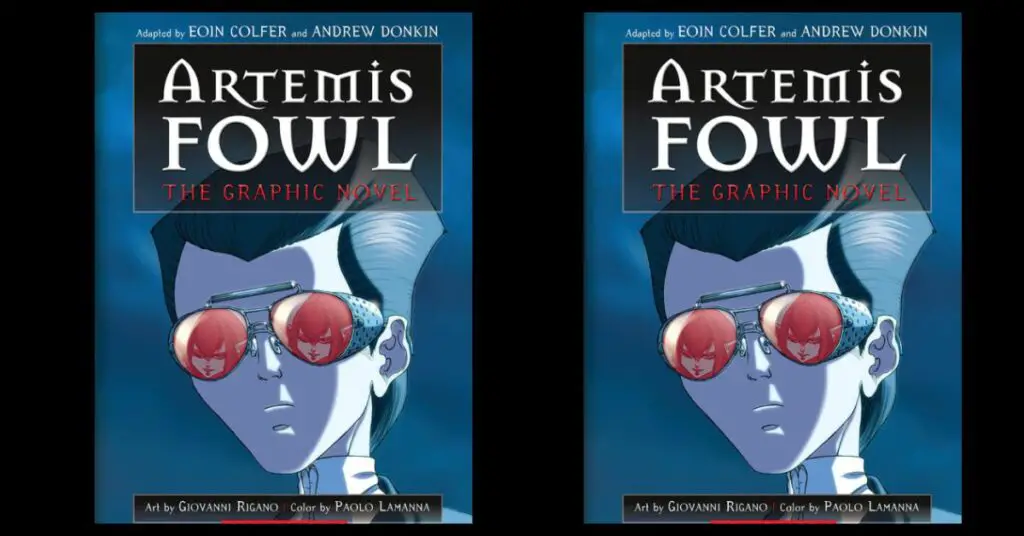Reading glasses are eyeglasses designed for close-up vision.
They magnify the words on a page, making them easier to see. Without reading glasses, you may have to hold a book or newspaper closer to your face than normal in order to see it clearly.
Some still wonder why they need reading glasses. As you get older, your eyes will naturally start to change. But it’s not just seniors who need reading glasses. If you have trouble seeing up close, reading glasses may be the answer.
While reading glasses can be a big help, they’re not for everyone. If you only occasionally need them, you may prefer to use a magnifying glass instead. Or, if you wear contact lenses or glasses for distance vision.
In this article, we’ll explain everything you need to know about reading glasses, from how they work to when you might need them.
The Importance of Reading Glasses
Most people don’t realize the importance of reading glasses until they start to experience problems with their vision. Reading glasses are designed to help people who have difficulty seeing small print or objects up close.
If you’ve ever tried to read something without your reading glasses, you know how frustrating it can be. Suddenly, words and letters start to blur together, making it impossible to read.
Wearing reading glasses can help you avoid this problem and make it easier to read for extended periods of time. Additionally, reading glasses can also help prevent eye strain and headaches that can be caused by squinting to see small print.
If you’ve been struggling to read without your glasses, it’s time to give them a try. You may be surprised at how much of a difference they can make.
Signs of Weak Eyesight
01. Reading Too Close
According to the American Optometric Association, reading too close is not a sign of weak eyesight. However, if you find yourself holding your book or smartphone closer to arm’s length in order to see it clearly, you may be experiencing symptoms of farsightedness.
If this is the case, you should schedule an appointment with an optometrist or ophthalmologist to determine if corrective lenses are right for you. In general, reading too close is not harmful to your eyesight.
However, if you experience eye strain or headaches after extended periods of near work, mention this to your doctor.
02. Blurry Vision with Halos
Blurry vision with halos can be a sign of weak eyesight. If you are experiencing these symptoms, it is important to see an eye doctor so that they can determine the cause and provide you with the appropriate treatment.
There are a variety of reasons why someone might experience blurry vision and halos, including refractive errors, cataracts, and glaucoma. Depending on the underlying cause, treatment options may include glasses or contact lenses, surgery, or medication.
Visit an eye doctor if you are experiencing any changes in your vision so that they can properly assess your condition and provide you with the best possible care.
03. Feel like Squinting
It’s possible that your squinting is caused by something else, like eye strain from looking at a computer screen all day or from not having proper lighting in your environment. So if you’re worried about your eyesight, the best thing to do is to visit an optometrist and get your eyes checked. And if you do need glasses, don’t worry – they can actually help improve your eyesight!
04. Poor Visibility in Low Light
There are a few factors that can contribute to poor visibility in low light, and one of them is indeed weak eyesight. If you find that you’re struggling to see clearly in dimmer conditions, it’s a good idea to visit an eye doctor to get your vision checked.
There are other potential causes for poor visibility in low light as well, such as cataracts or damage to the retina, so it’s important to get a professional opinion to determine the root cause of your problem.
In some cases, glasses or contact lenses can help improve vision in low light, but if the cause is more serious, other treatments may be necessary.
05. Headaches during Reading
It’s possible that weak eyesight is the cause of your headaches during reading, but it’s also possible that there are other causes, such as poor posture when reading or eyestrain from looking at a computer screen for too long.
If you suspect that your headaches during reading are caused by weak eyesight, it’s important to have your eyes checked by an eye doctor to determine whether you need glasses or not. In the meantime, here are a few tips to help improve your vision and reduce eyestrain:
Make sure you have enough light when reading and try to avoid glare. Take breaks every 20 minutes or so and focus on something at a distance for a few minutes. Adjust the font size on your electronic devices so that you don’t have to strain your eyes to see the text.
06. Eyes get Tired Quickly
There are a number of factors that can cause tired eyes, including long hours in front of a computer screen or reading, using the wrong eye drops, not getting enough sleep, and age.
If you’re experiencing tired eyes often, it’s important to visit an ophthalmologist for a comprehensive eye exam to rule out any underlying causes.
07. Surpassing 40 Years
Generally speaking, the chances of developing age-related eye problems increase as you get older. The most common problems are a condition called presbyopia, cataracts, and glaucoma.
Presbyopia is a problem that typically begins to occur in people around the age of 40 when the lens inside the eye begins to harden and lose its flexibility. This makes it harder for the eye to focus on close objects.
Cataracts are caused by a clouding of the lens inside the eye, which can lead to blurred vision and eventually blindness. Glaucoma is an optic nerve disease that can damage the retina and lead to vision loss.
08. Rub Eyes Frequently
There is no scientific evidence to support the claim that rubbing your eyes frequently is a sign of weak eyesight. In fact, rubbing your eyes can actually cause damage to your eyes and make your vision worse.
If you are experiencing problems with your vision, it is important to see an eye doctor for a diagnosis and treatment plan. There are many things that can cause blurry vision or other vision problems, and the best way to address the problem is through professional care.
How do Reading Glasses Correct a Sight?
There are two main ways that reading glasses correct a sight.
The first is by converging the light that comes into your eyes. This is because when you look at something close up, the light coming into your eyes is not focused directly on your retina.
The second way that reading glasses correct a sight is by magnifying the object you are looking at. This is because when you look at something close up, it appears smaller than when you look at it from a distance. By magnifying the object, reading glasses make it appear larger and easier to see.
Overall, reading glasses help to improve your vision by converging the light that comes into your eyes and by magnifying the object you are looking at.
Can Reading Glasses Weaken Your Eyes?
– Wrong Prescription:
This is definitely possible! If you are wearing the wrong prescription, your eyes will have to work harder to focus, and this can lead to eye fatigue and even headaches.
If you suspect that your prescription may be off, make an appointment with your eye doctor to get it checked out. Also, be sure to tell them if you’ve been having any vision-related issues so they can help determine the cause.
– Poor Quality Lenses:
It is certainly possible that using poor quality lenses can weaken your eyes. This is because if the lenses are not of good quality, they may not fit well on your eyes and could cause irritation.
Additionally, if the lenses are not cleaned properly, it could lead to the build-up of bacteria on the lens, which could also cause irritation and vision problems. So, if you are using poor quality lenses, it is important to make sure that you are cleaning them properly and that they fit well on your eyes.
– Over Counter Readers:
It is possible that the bright light from over-the-counter readers may cause some temporary weakening of your eyes. In general, any activity that requires a sustained focus on a near object can cause a temporary weakening of the eyes. This is especially true if you are not used to doing this type of activity.
How to Care For Your Reading Glasses?
Take care of your reading glasses by keeping them in a cool, dry place when you’re not using them. Avoid leaving your reading glasses in direct sunlight or in hot places like near a stove.
Wipe down the lenses with a soft cloth if they get dirty. Never use harsh chemicals, like window cleaner, to clean your reading glasses’ lenses.
If you have a pair of glasses that you only use for reading, keep them in a case when you’re not using them to protect the lenses from scratches.
Frequently Asked Questions Related to The Need For Reading Glasses
1. Do 1.0 reading glasses do anything?
Yes, 1.0 reading glasses can help you see more clearly. This is because they magnify the words on the page, making them easier to read. Additionally, 1.0 reading glasses can also help reduce eye strain and fatigue since you won’t have to strain your eyes as much to see the words clearly.
So if you’re finding it difficult to read without glasses, or if your eyes are feeling tired after reading for a while, giving 1.0 reading glasses a try could make a big difference.
2. Can you wear reading glasses all day?
Yes, you can wear reading glasses all day. However, you may want to take them off for a break after a few hours. Your eyes may get tired from looking through the lenses for an extended period of time.
Also, if you are doing any close-up work, such as using a computer or reading, it is best to take your glasses off every 20 minutes or so and give your eyes a rest.
3. What happens if you avoid reading glasses when needing them?
If you avoid reading glasses when needing them, you may experience a gradual worsening of your vision. This can lead to eventual blindness if not corrected.
If you are starting to have trouble seeing close-up, it’s very important to get reading glasses or contact lenses to prevent your vision from getting worse.





